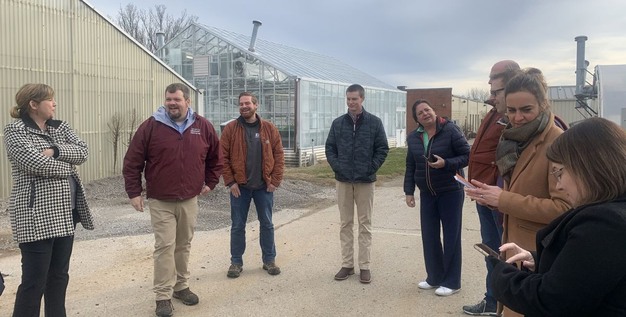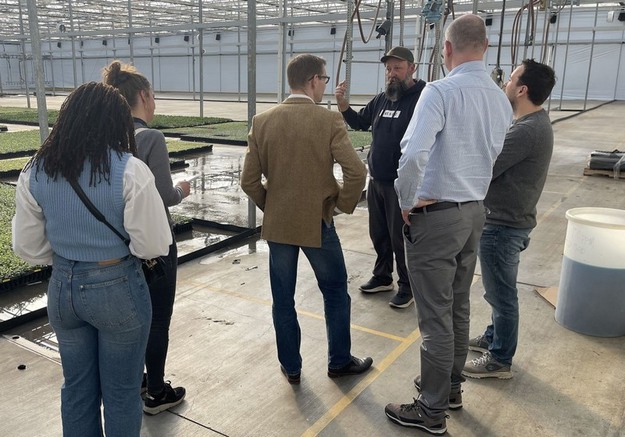A voucher from the Green Deal Internationalization Acceleration Program made it possible for representatives of the HAS Green Academy, Inholland and Yuerta to travel to Kentucky. Cooperation projects between the Netherlands and Kentucky could use some acceleration. According to the Groenpact, there is still little cooperation, especially in the field of education.
On a healthy diet
Kentucky is a state with high unemployment and major health problems. To turn the tide, Kentucky decided to shift from tobacco production to horticulture. Locally produced, healthy food: a great destination. Farmers got mine greenhouses from the government to produce vegetables. However, entrepreneurs lack the necessary knowledge and skills. Nor is there an ecosystem of collaboration between academia, business and government. Two subjects in which the Netherlands excels. In 2020, an ambitious cooperation agreement was signed between 17 parties from Kentucky and the Netherlands: Let’s Grow Together.
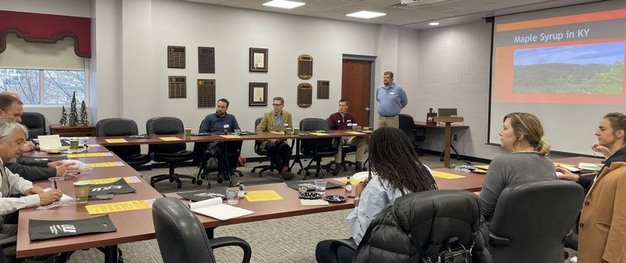
Urgent need for knowledge
Marjo Payton is a project manager for International Projects and one of the pioneers who traveled to Kentucky. “There were early online conversations to gauge needs,” says Marjo. “But I know: if we want to get something, we have to go there.” Kentucky universities are urgently seeking knowledge and want to set up a full horticulture cluster. A Dutch education has many opportunities. “We were welcomed with open arms, we met teachers, we visited many universities and institutions so that we can help develop the curriculum. We need to raise money for it. It is still at a standstill.
Accelerate international opportunities with a voucher
The challenges of our time are great. That is why international cooperation and knowledge sharing in the field of education, research and innovation is essential. The Groenpact Internationalization Acceleration Program offers educational institutions the opportunity to accelerate international cooperation. A school can receive up to 20 vouchers worth €15,000 per year. To qualify, applicants submit a project proposal. With the amount provided, educational institutions can conduct research abroad and make necessary contacts.
Here You can find more information about the new voucher round here.
Sustainable cultivation
Dutch greenhouse producers can expect the necessary orders, because greenhouse horticulture is indeed part of the future of growing in Kentucky. “As a farmer, you can achieve high yields in a greenhouse with minimal water, nutrients and pesticides,” explains Marjo. “This makes this cultivation system sustainable. The input per kg of vegetables is low. However, managing this controlled cultivation system requires knowledge and skills and entrepreneurs must be trained for it. Also, such a greenhouse is a huge investment for the average farmer, so it is not yet for everyone. So It seems more logical to focus on cultivation in open air cultivation and mine greenhouses, here too you can achieve better returns with less investment.
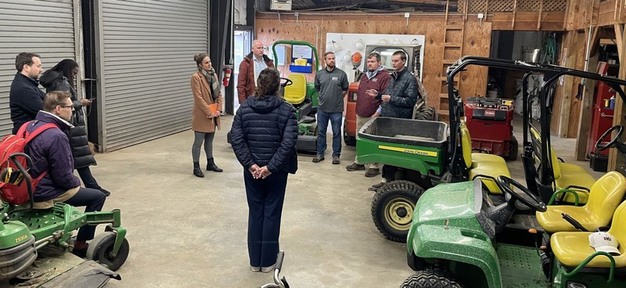
Bumps to overcome
Marjo observes everything: the willingness to move forward is present in all parties involved. “We looked for low-hanging fruit like student exchanges and internships. You only need a visa for that. Plus, the Dutch system is very different. In the US, as a student you come to a campus and everything is arranged for you. Our secondary vocational or higher professional education doesn’t have that. In the US There are different types of universities, different funding sources. You still have to deal with the level differences between different types of education. Finally: For us, knowledge sharing and cooperation between academia, business and government is very normal. But there is really something else. These are obstacles to overcome. “
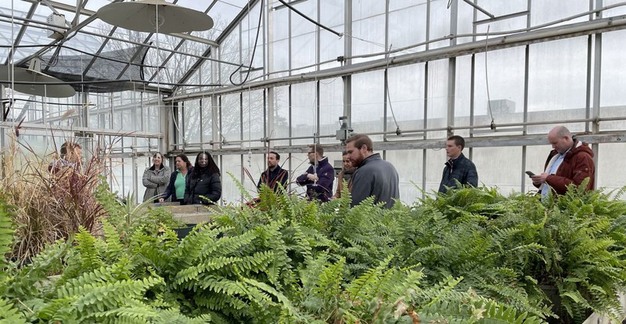
Dream results
The visit to Kentucky was intended to ascertain exactly what was needed, both business and education. It should also clarify what steps are required to revive the collaboration. Marjo: “It all worked. The next step is to initiate student exchange. We don’t have the funds for this yet, but we want to start the first exchanges in January 2024. An internship with a research project would be awesome. But teacher exchange is also necessary.”
Photos by Marjo Baeten.
Bran: Green Deal

“Coffee fanatic. Friendly zombie aficionado. Devoted pop culture practitioner. Evil travel advocate. Typical organizer.”


